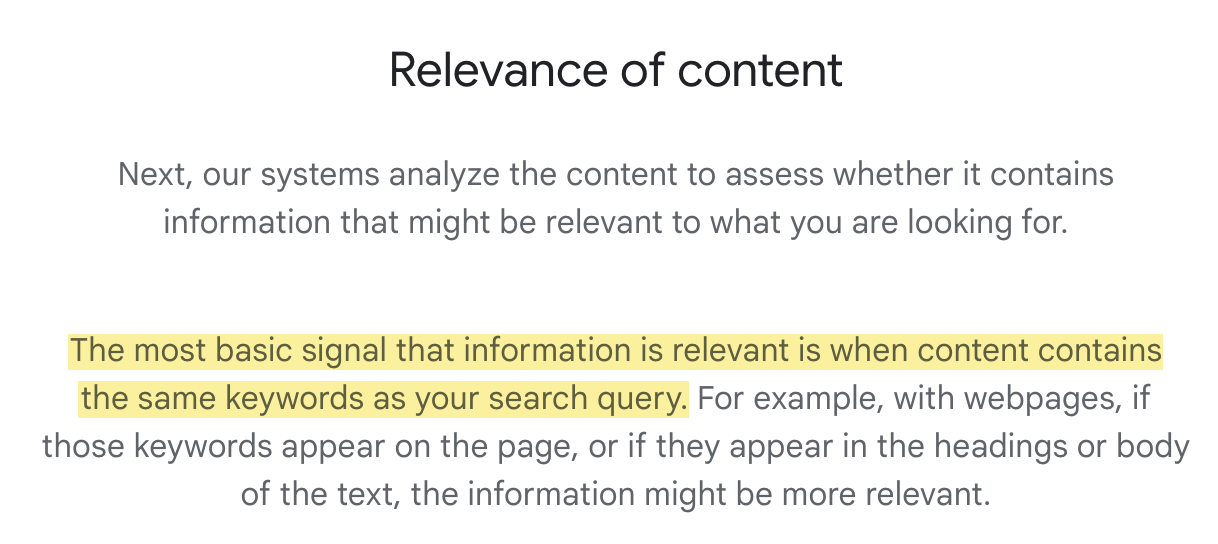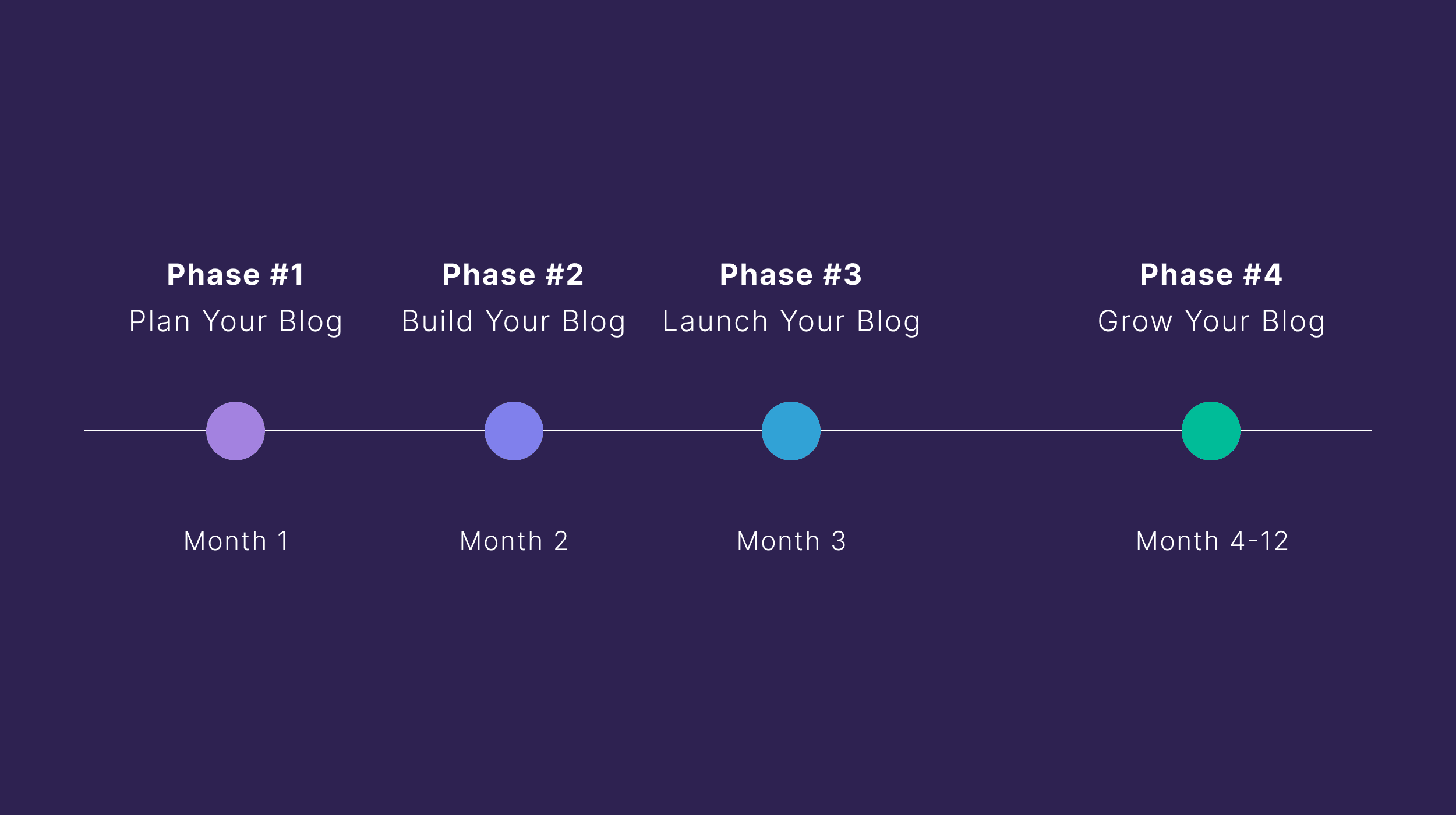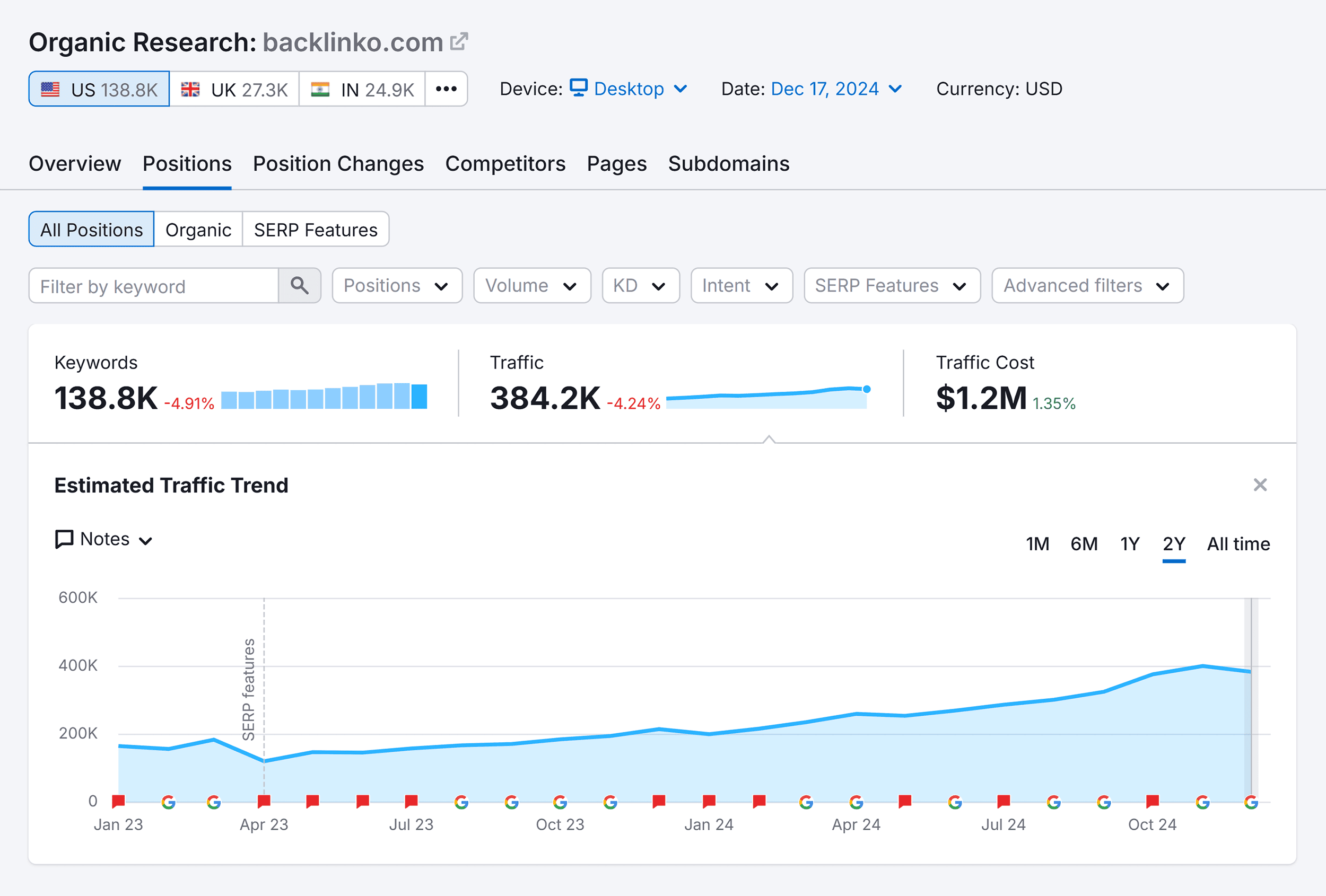Google aims to rank the most relevant results for searchers. So if your content isn’t relevant, it won’t rank.
But relevance isn’t just about including your keyword a bunch of times. In fact, it isn’t about that at all.
In this guide, you’ll learn how to create relevant content that Google wants to rank.
3. Do searchers seem to find it useful?
On the same page, Google also mentions this:
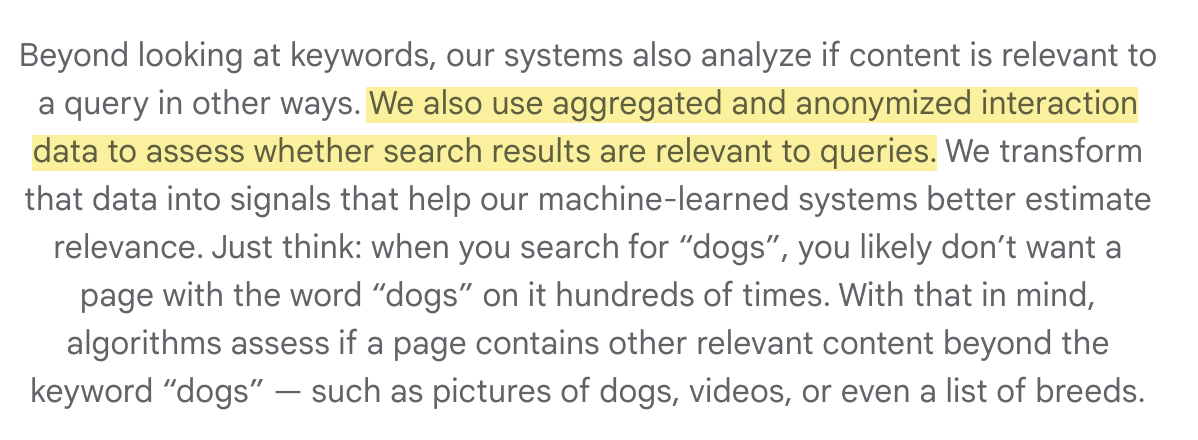
This is partly why the top-ranking results for “apple” are about the technology company and not the fruit. Google knows from interaction data that most searchers are looking for the maker of the iPhone.
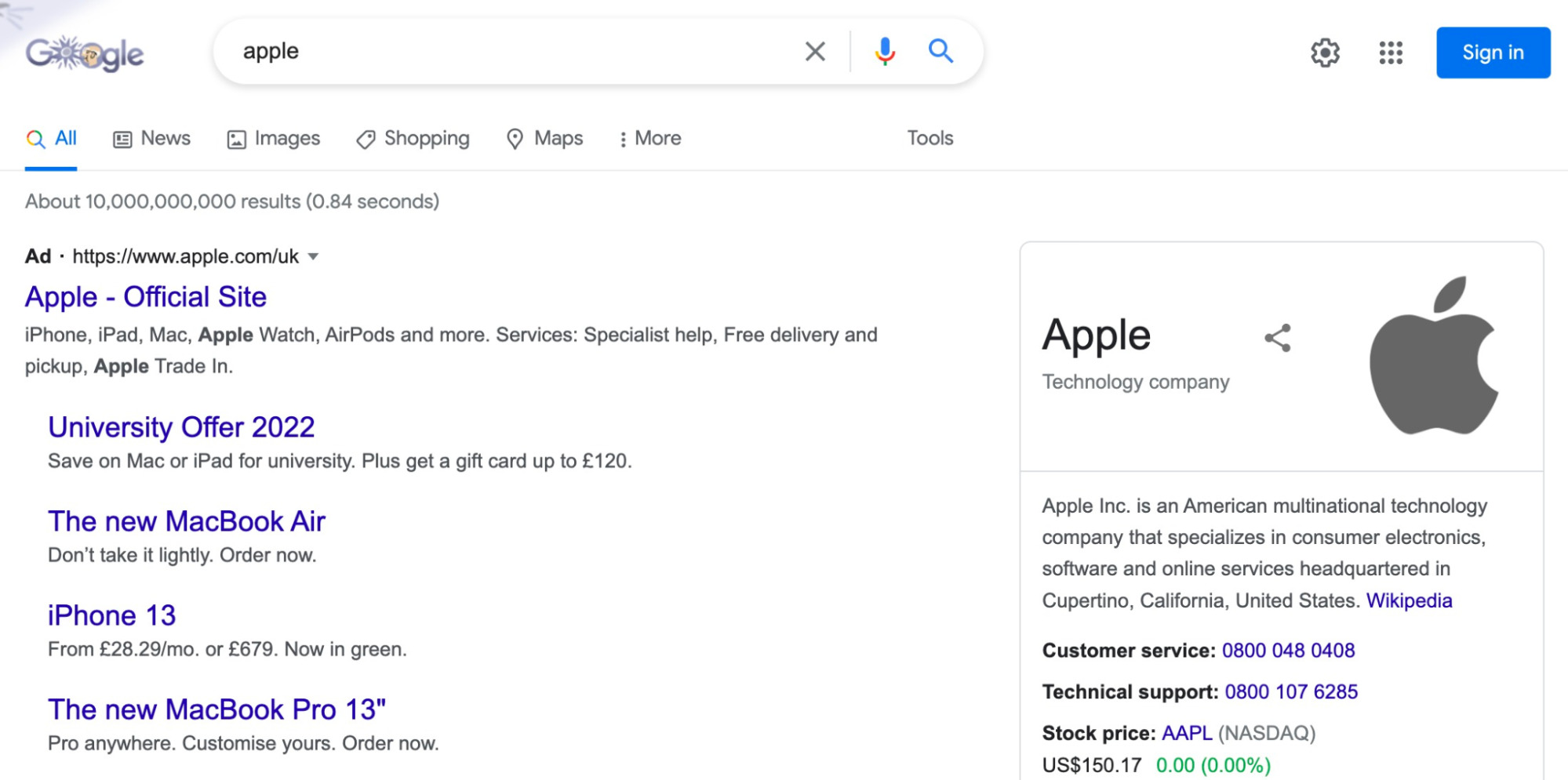
In the same vein, this is one reason why freshness can be important. For queries that are dependent on freshness—for example, football transfers, election results, etc.—searchers want to see the latest news. And Google prioritizes those results over the rest.
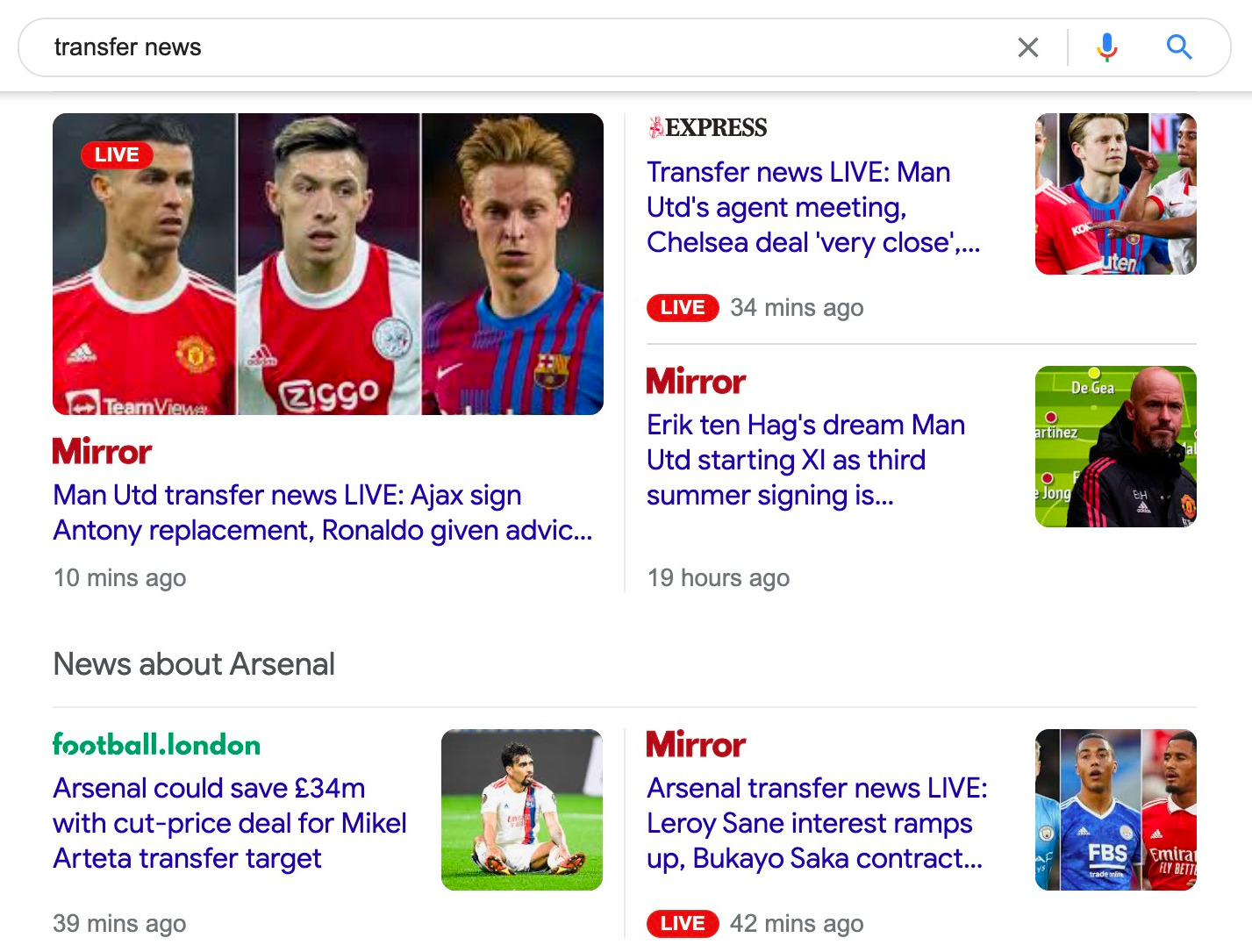
Recommendation
According to Google, relevance (in terms of local rankings) refers to how well a local business profile matches what someone is searching for.
Relevance is specific to each query. So before you can create “relevant” content, you need to make sure you have keywords you want to target.
If you have not done this step, do it now. You can follow the process in this video to find keywords you want to rank for.
https://www.youtube.com/watch?v=OMJQPqG2Uas
Recommended reading: Keyword Research: The Beginner’s Guide by Ahrefs
1. Figure out search intent
We’ve established earlier that a key aspect of relevance is whether searchers find the search results useful. That means Google is constantly figuring out why searchers are looking for that query, i.e., search intent. Google then serves results it thinks fulfills that intent.
This means if you want to rank high on Google, you need to find out what the search intent for your target keyword is. And since Google works to show the most relevant results, we can actually look at the top-ranking pages to figure out the three Cs of search intent:
- Content type – Is there a dominant type of content on the SERP, such as blog posts, product pages, videos, or landing pages?
- Content format – Is there a dominant content format on the SERP, such as guides, listicles, news articles, opinion pieces, or reviews?
- Content angle – Is there a dominant angle on the SERP, such as freshly updated content or content aimed at beginners?
For example, let’s say we want to rank for “best frying pans.” Let’s analyze the three Cs for this keyword:
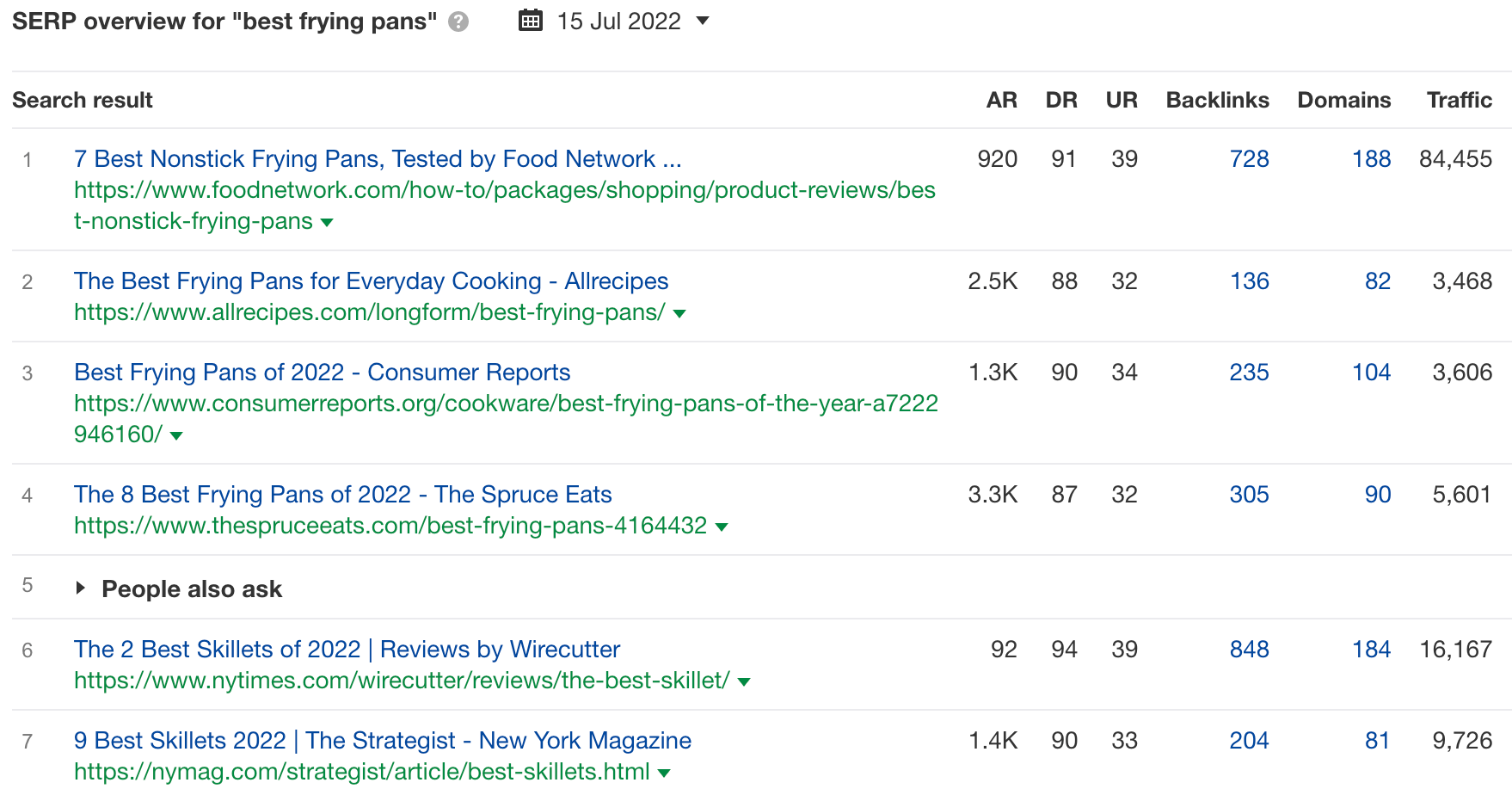
- Content type – They’re mostly blog posts.
- Content format – They’re all listicles.
- Content angle – The main angle is 2022, which means freshness is an important angle.
To rank for this keyword, you’ll likely have to create a “best frying pan” list post updated to the current year.
Recommended reading: What Is Search Intent? A Complete Guide for Beginners
2. Cover everything the searcher wants to know
To deserve a place on the first page of Google, you’ll need to cover all the things searchers expect and want to know.
How do you do this?
Again, we’ll turn to relevant top-ranking pages to find out what we should be covering.
Look for common subheadings
Subheadings offer quick insights into what searchers are looking for, especially if there are the same or similar ones across the top-ranking pages.
For example, if we look at the top-ranking pages for “guest blogging,” it’s likely we’ll have to talk about subtopics like these:
- What guest blogging is
- Benefits of guest blogging
- How to find guest blogging opportunities
And more.
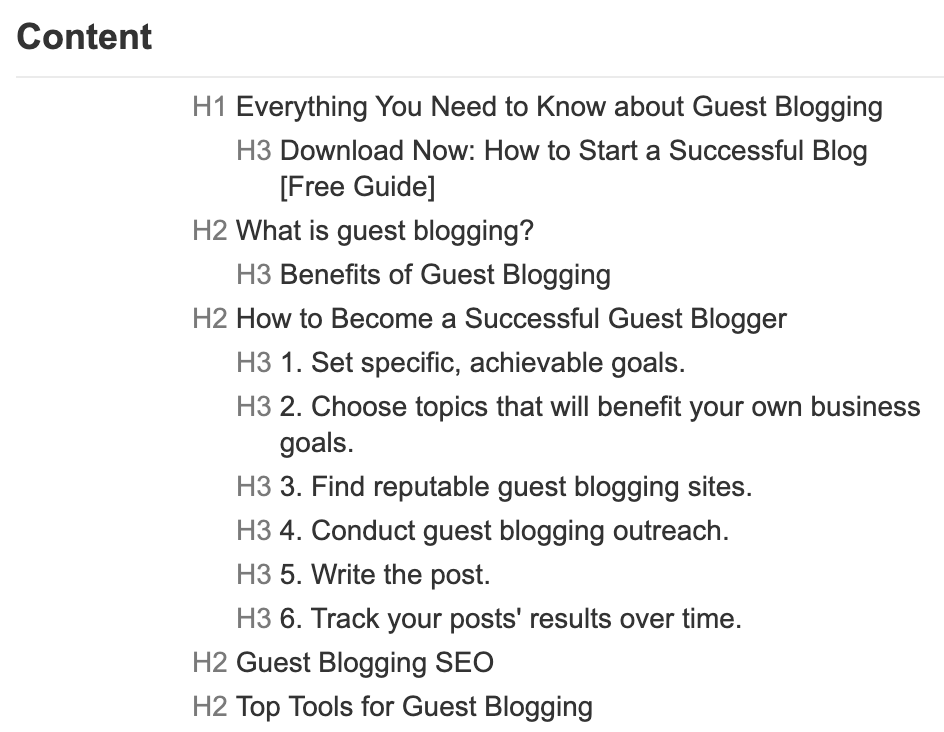
A quick way to view all the subheadings in a post is to install Ahrefs’ SEO Toolbar and use the free content report (what I did above).
Look for subtopics among keyword rankings
A page can rank for hundreds of different keywords. Most of them will be different ways of searching for the same topic, whereas some will be important subtopics you’ll want to cover.
Here’s how to find these subtopics:
- Paste a few top-ranking URLs for your main topic into Ahrefs’ Content Gap tool
- Leave the bottom section blank
- Hit Show keywords
- Set the Intersection filter to 3 and 4 targets
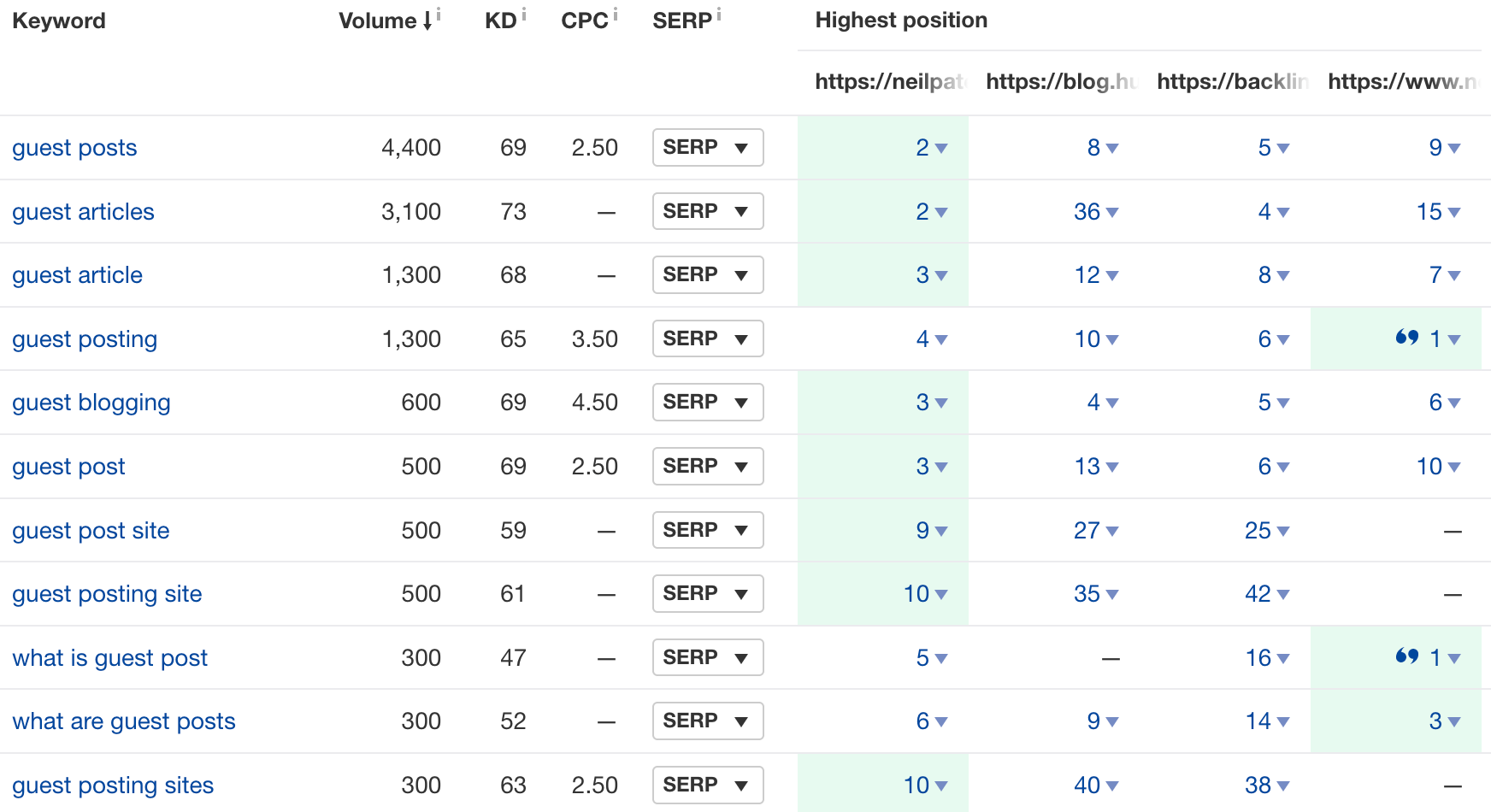
We can see the pages also rank for subtopics like these:
- What are guest posts
- What is guest posting
- Why guest blogging
- Guest blog opportunities
- Guest post for SEO
- Guest blogging strategy
And more.
Look at People Also Ask boxes
In recent years, Google has introduced the People Also Ask (PAA) box for most queries:
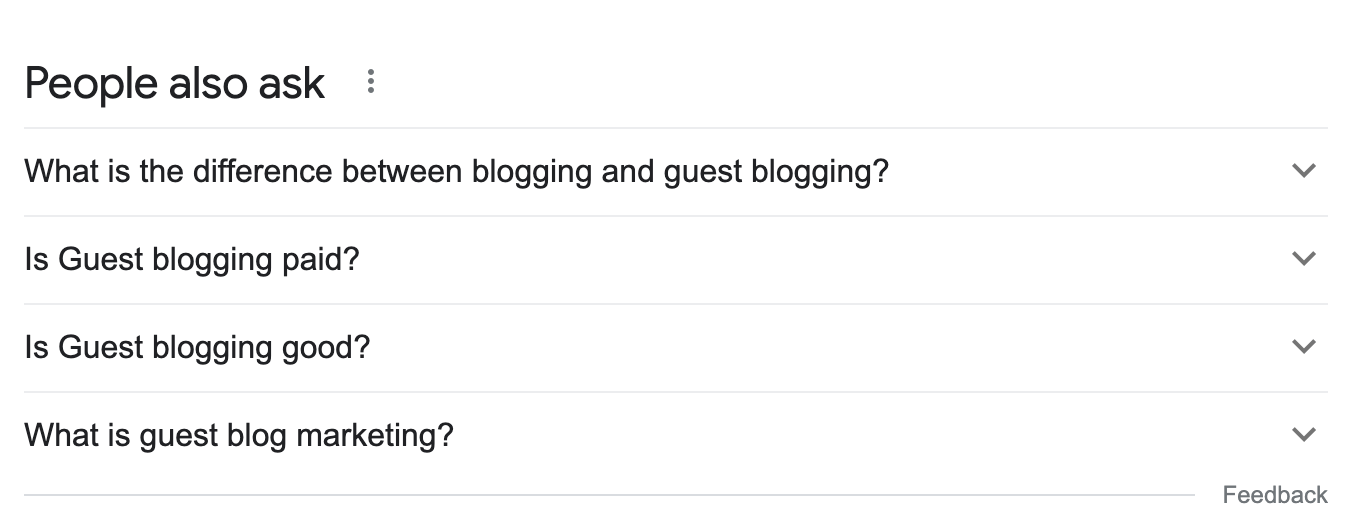
These questions offer insights into other things searchers may want to know. You can use a tool like AlsoAsked to pull all the PAA questions related to the topic you’re targeting:
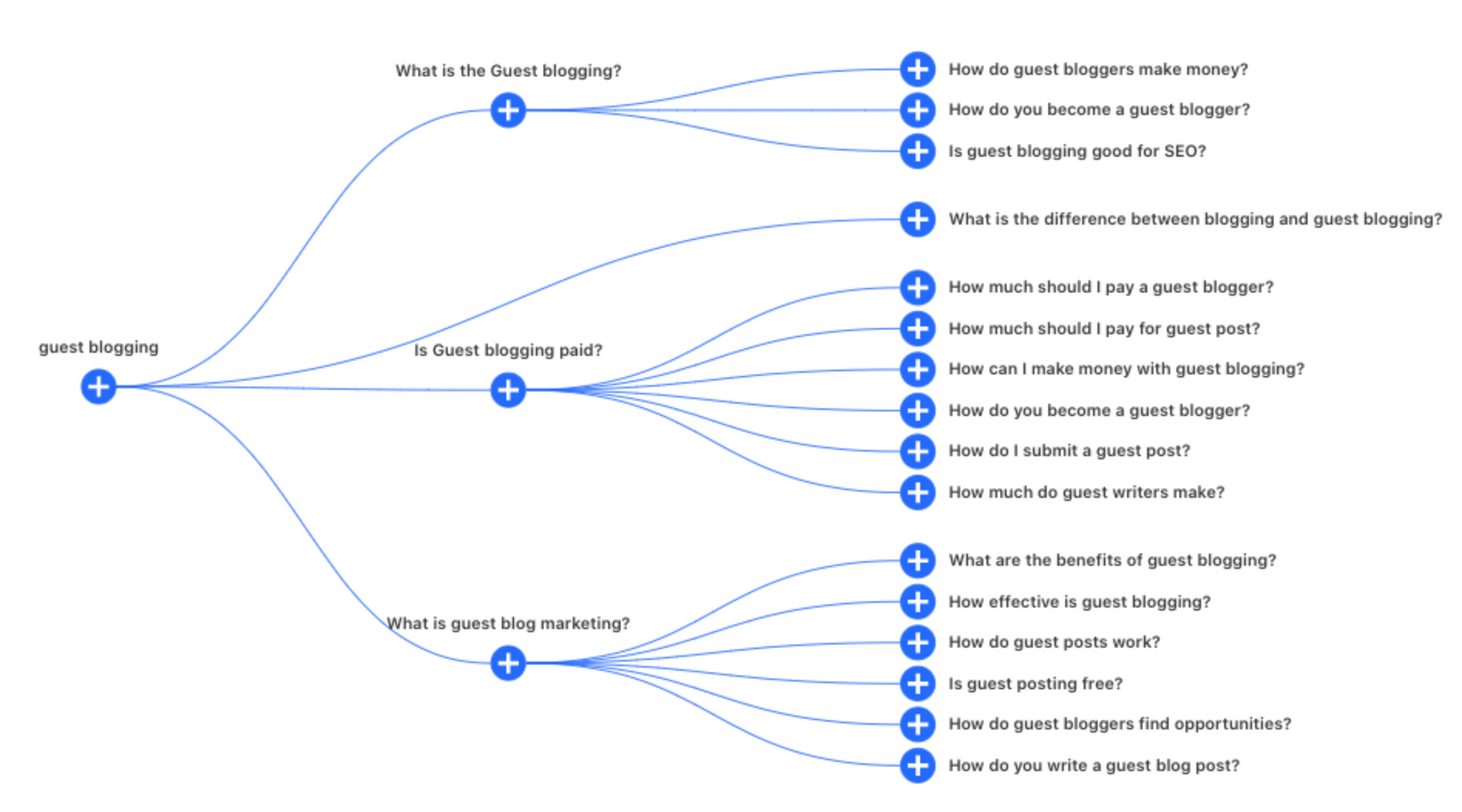
Look at the top-ranking pages manually
Finally, there’s no better substitute than simply going through each page manually to see if you’ve missed out on anything.
Once you’re done with your research, get cracking and create your content.
Besides creating content, there are a few more ways to demonstrate to Google that your content is relevant.
Here’s how:
1. Get your basic on-page SEO down pat
You’ve done the hard part—creating a thorough, relevant piece of content that Google and searchers want to see. Now, it’s time to put the “icing” on the cake and make it doubly clear to Google and searchers your page is relevant.
You’ll do this by optimizing the “technical” stuff, i.e., the page’s on-page SEO. Here are the basics you need to do:
- Include your keyword in the title – Google confirmed the importance of headings in 2020. If it’s not possible, don’t try to squeeze in the keyword. Use a close variation instead.
- Use short, descriptive URLs – Compared to URLs like ahrefs.com/blog/36778, the URL ahrefs.com/blog/seo-copywriting helps searchers to understand what a page is about before clicking.
- Write a compelling meta description – While not a ranking factor, Google does bold words and phrases closely related to the query. It also helps further entice searchers to click on your results.
- Optimize your images – Filenames and alt text help Google understand images better. So make sure you name your images appropriately and write alt text that’s descriptive.
- Link to relevant internal and external resources – Linking to relevant internal and external resources helps visitors navigate your website and find more information.
Recommended reading: On-Page SEO: The Beginner’s Guide
2. Consider building content hubs
Content hubs (also known as topic clusters) are interlinked collections of content about a similar topic. They consist of three parts:
- Pillar page – A high-level guide about a broad topic.
- Subpages – In-depth guides about parts of the main topic.
- Internal links – They connect the pillar page and its subpages in both directions.
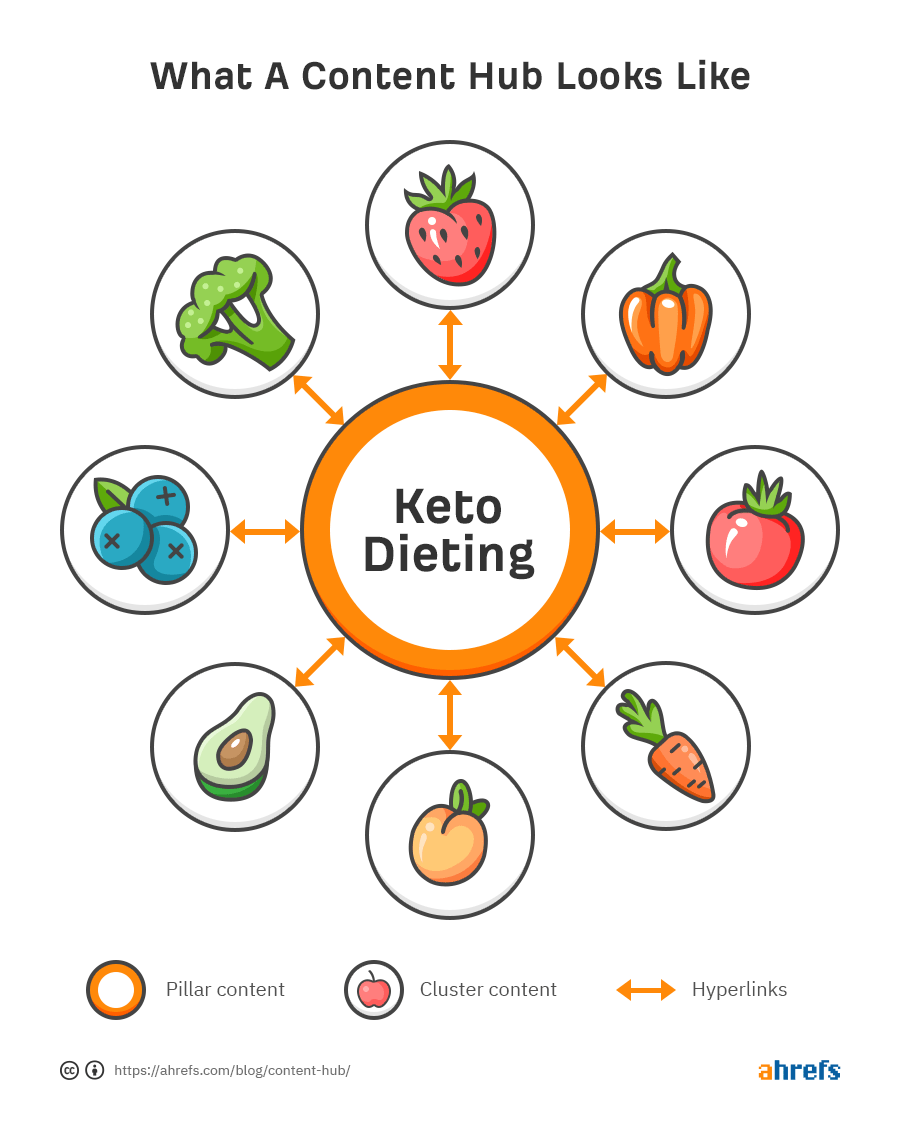
Google looks at links and their anchor text to understand a page’s content and, therefore, relevance.
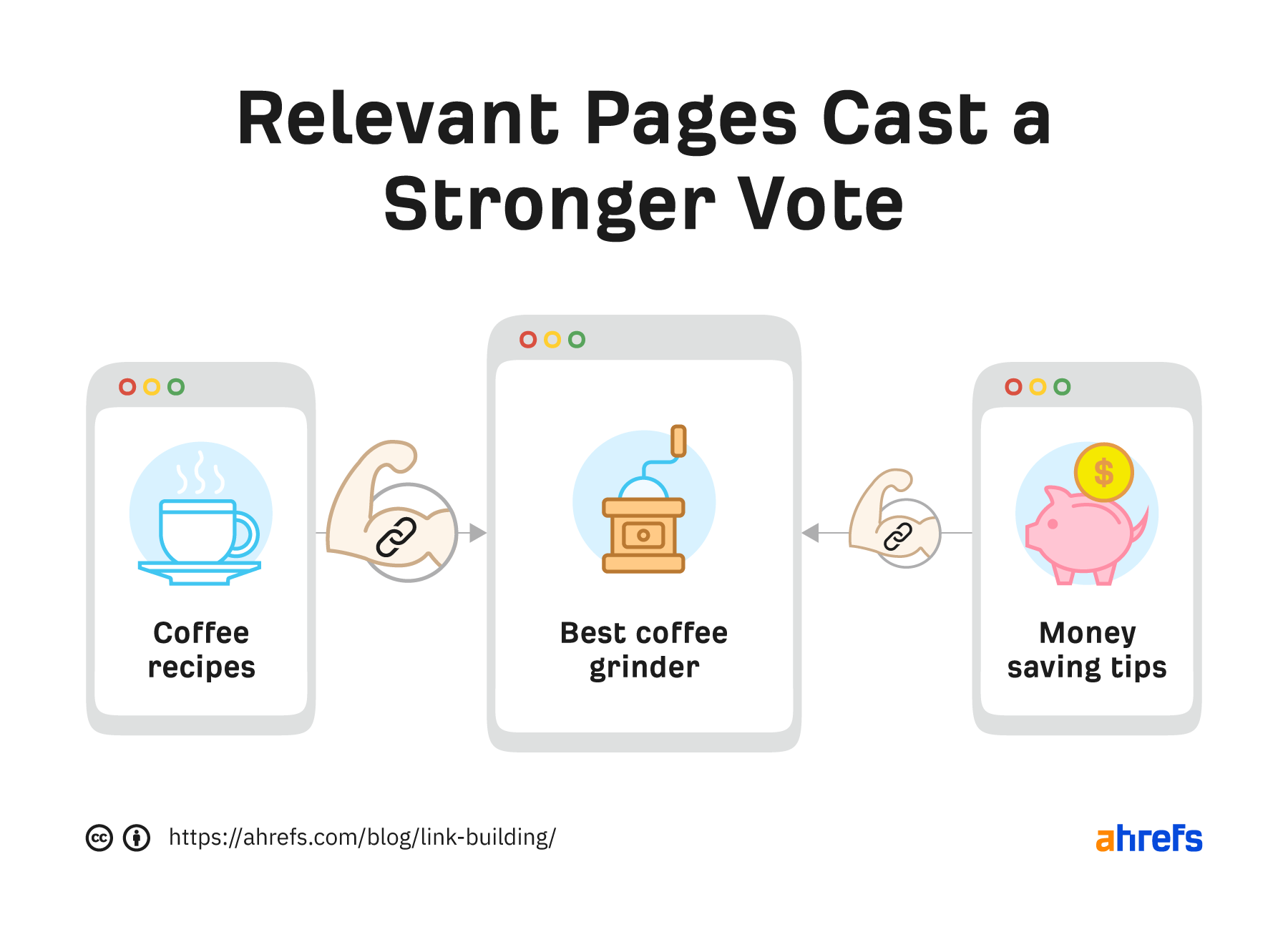
For example, if a site about coffee links to your page about coffee, it “affirms” to Google that your page is about coffee. Makes sense, right?
It works the same way for internal links too.
Most links do provide a bit of additional context through their anchor text. At least they should, right‽
— 🫧 johnmu of switzerland (personal) 🫧 (@JohnMu) November 23, 2017
So by connecting your pages using relevant internal links in a content hub, it helps to build semantic relationships between your content.
Furthermore, because of the perceived value of a hub—as people usually prefer to link to the best, most useful resource on a topic—content hubs tend to attract a lot of backlinks. Not only does this improve relevance, but it can also help to boost rankings (links are an important Google ranking factor!).
I recommend following the guide below to learn more about how to create a content hub.
Recommended reading: Content Hubs for SEO: How to Get More Traffic and Links With Topic Clusters
3. Build links
If links help to establish relevance, then the logical next step is to build more of them.
Link building is a whole topic on its own, so I recommend watching this video to get started:
https://www.youtube.com/watch?v=C5ddo63kHHI
We have tons of resources about link building on our blog too, so you should check them out:
Learn more
Want more resources on how to create great, relevant content that ranks? Check these out:
Any questions or comments? Let me know on Twitter.
Content Copyrights Belong to The Author. All Rights Reserved.
We're A Dallas Digital Marketing Agency That is Experts At Social Media Marketing, Website Design and Emarketing and Promotion.

